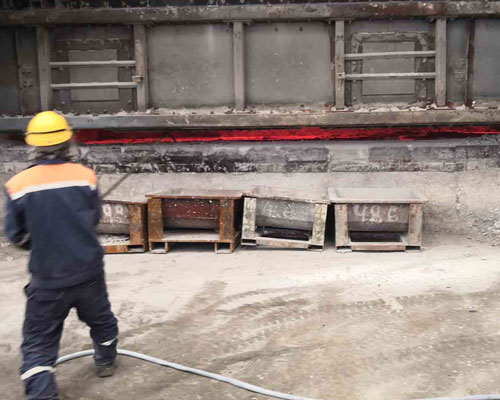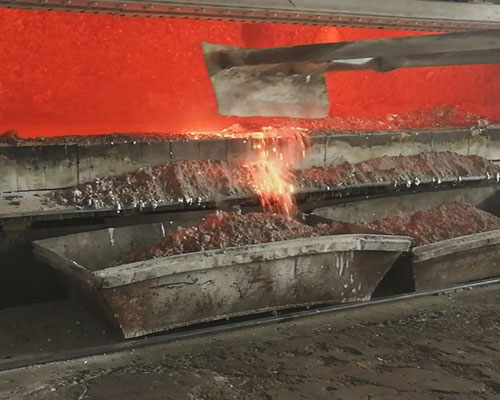The most widely accepted and most commonly used method for removing inclusions such as oxide films from molten aluminum is flux refining.
The chemical composition used in the flux depends on the goals of the casting process (alkali removal, cleanliness, dross separation). Flux-based Na2SO4 and NaCl are used to reduce the percentage of oxide inclusions in molten aluminum by bonding them to the melt surface.
Because adding refining flux in aluminum castings can reduce inclusions, thereby increasing the fluidity of the metal.
Fluidity is the ability of liquid metal to flow at the melting temperature before it stops due to solidification. The influence of inclusions on fluidity is that the fluidity of pure aluminum is significantly reduced due to the presence of oxide inclusions, because oxide inclusions block the flow of liquid metal. The fluidity of the sample increases with the addition of flux.
Oxides are the most common inclusions in the metal casting process. If the molten aluminum is not subjected to proper refining treatment, oxide inclusions will remain in the cast aluminum ingot, which will inevitably cause many problems such as reduced mechanical properties, poor machinability, and poor surface quality. In order to reduce the existence of defects in the final product, it is important to use molten aluminum that does not contain any impurities during the casting process.

Recycled aluminum is aluminum produced through aluminum recycling processes with aluminum scrap as the main source. The use of aluminum scrap in the aluminum recycling process has a disadvantage because it contains many impurity elements that are not needed in metal casting. These impurities are considered unwanted inclusions and will reduce the quality of the final product. In the metal casting process, inclusions can cause defects, thereby reducing the quality of the final product.
The addition of flux improves the quality of molten aluminum during the casting process. This is due to the action of the flux that binds the oxide inclusions in the molten metal to the surface. As the weight percentage and melting temperature of the flux increase to their optimum point, oxide inclusions decrease. Molten aluminum flux refining treatment has the highest efficiency in removing oxide inclusions.

